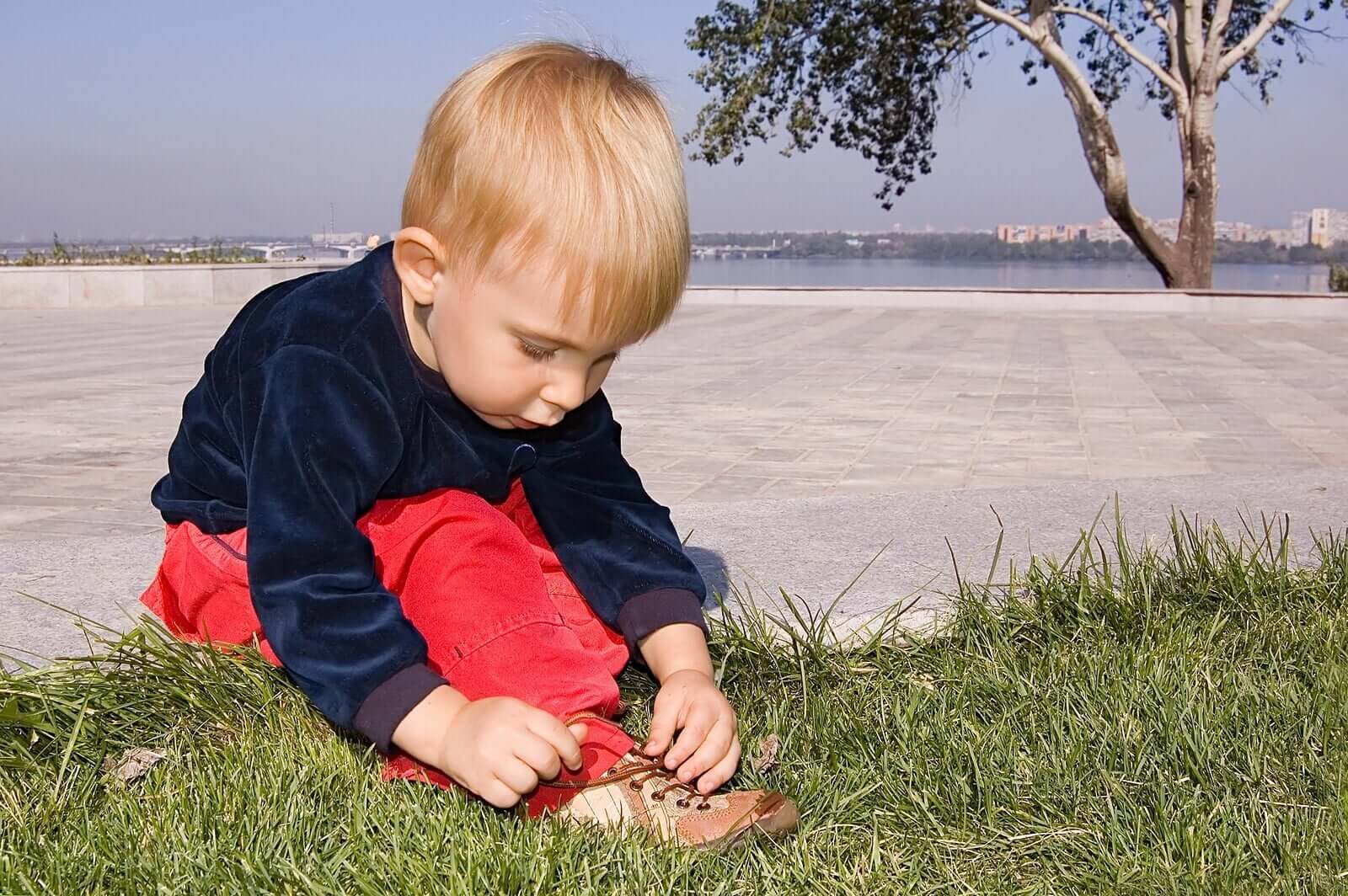How to Raise Resilient Children: Avoid Saying These Phrases


Written and verified by the psychopedagogue María José Roldán
We can’t control the challenges our children will face in life, but that doesn’t mean we can’t prepare them. One of the most powerful gifts we can give our children is resilience, the ability to overcome the inevitable obstacles they face. However, if you want to raise resilient children, you should avoid using certain phrases.
If you want to raise resilient children, avoid saying the following phrases
Helping children develop resilience means that they’ll be able to recover from setbacks, rather than wallowing in them. Unfortunately, there are many well-intentioned things parents say that can inadvertently hinder this developmental skill.
“You’re okay”
At first glance, this phrase may seem like one that encourages courage and resilience. However, in reality, it sends a message to children that they can’t trust their feelings.

Don’t run towards your child or gasp every time your child hurts themself. Walk calmly, look at the scratch or bump, and ask if they’re okay. This approach lets your child know that even though they’re in pain, their feelings are okay and they’ll recover.
“I’ll do it myself,” one of the phrases to avoid if you want to raise resilient children
Whether it’s because you’re in a hurry or because it’s too hard to watch your child struggle, it’s easy to want to solve their problems. This doesn’t mean you can’t help and support them – just try not to solve everything for them.
If they have trouble tying their shoes, it’s easier to do it for them than to wait and see if they really need some help. If they’re arguing with a friend, you may want to talk to the other child’s parents and try to work things out behind the scenes so your child can control the situation. But doing these things will only cause harm in the long run…
Offer the minimum amount of help your child needs to be successful. Instead of simply tying their shoe, try offering verbal support, saying something like, “Now do a bunny ear.”
If they continue having a hard time, offer to tie one shoe as an example. If you’re in a hurry, you can tie the shoes yourself, but then calmly teach them how to do it at another time.
Watch your child to see how much they can handle. You want to challenge them, but not overwhelm them. Of course, there will be times when you don’t have time to let your little one do something on their own, and that’s okay too.
There may not be time for them to tie their own shoes in the morning before school. However, they can practice on the weekends. As they become more capable, they can do more and more things on their own.
“That’s easy, you can do it”
This little phrase may seem encouraging. But telling a child that something that seems challenging for them is easy will only take away their desire to try. Instead, try saying something like, “I know it’s hard, but I think you can do it.” This will emphasize their ability to overcome difficult things.

“You’re going to fall”
It’s not fun to watch our children fall and get hurt. But, when you see your little one doing something that makes you uncomfortable, try to assess the situation.
Are they likely to get hurt or just bumped or bruised? Is there a way to spot your child to protect them without them noticing? By constantly telling your children to be careful or that they may fall, we’re sending the message that they’re not safe.
Each parent has to use his or her own judgment and comfort level with risk. If you see your young child starting to climb up a slide and a bigger child is at the top about to go down, you may want to stop your child. But if you see your toddler climbing a ladder for the first time, try to just be there to catch them if they fall, without letting them see your fear.
It’s important for children to learn to assess risk for themselves so they can determine when they’re really unsafe and when it’s okay to take a little risk to try something new. Your guidance is critical to their success.
So, if you want to raise resilient children, remember to stay away from the phrases we mentioned above.
We can’t control the challenges our children will face in life, but that doesn’t mean we can’t prepare them. One of the most powerful gifts we can give our children is resilience, the ability to overcome the inevitable obstacles they face. However, if you want to raise resilient children, you should avoid using certain phrases.
If you want to raise resilient children, avoid saying the following phrases
Helping children develop resilience means that they’ll be able to recover from setbacks, rather than wallowing in them. Unfortunately, there are many well-intentioned things parents say that can inadvertently hinder this developmental skill.
“You’re okay”
At first glance, this phrase may seem like one that encourages courage and resilience. However, in reality, it sends a message to children that they can’t trust their feelings.

Don’t run towards your child or gasp every time your child hurts themself. Walk calmly, look at the scratch or bump, and ask if they’re okay. This approach lets your child know that even though they’re in pain, their feelings are okay and they’ll recover.
“I’ll do it myself,” one of the phrases to avoid if you want to raise resilient children
Whether it’s because you’re in a hurry or because it’s too hard to watch your child struggle, it’s easy to want to solve their problems. This doesn’t mean you can’t help and support them – just try not to solve everything for them.
If they have trouble tying their shoes, it’s easier to do it for them than to wait and see if they really need some help. If they’re arguing with a friend, you may want to talk to the other child’s parents and try to work things out behind the scenes so your child can control the situation. But doing these things will only cause harm in the long run…
Offer the minimum amount of help your child needs to be successful. Instead of simply tying their shoe, try offering verbal support, saying something like, “Now do a bunny ear.”
If they continue having a hard time, offer to tie one shoe as an example. If you’re in a hurry, you can tie the shoes yourself, but then calmly teach them how to do it at another time.
Watch your child to see how much they can handle. You want to challenge them, but not overwhelm them. Of course, there will be times when you don’t have time to let your little one do something on their own, and that’s okay too.
There may not be time for them to tie their own shoes in the morning before school. However, they can practice on the weekends. As they become more capable, they can do more and more things on their own.
“That’s easy, you can do it”
This little phrase may seem encouraging. But telling a child that something that seems challenging for them is easy will only take away their desire to try. Instead, try saying something like, “I know it’s hard, but I think you can do it.” This will emphasize their ability to overcome difficult things.

“You’re going to fall”
It’s not fun to watch our children fall and get hurt. But, when you see your little one doing something that makes you uncomfortable, try to assess the situation.
Are they likely to get hurt or just bumped or bruised? Is there a way to spot your child to protect them without them noticing? By constantly telling your children to be careful or that they may fall, we’re sending the message that they’re not safe.
Each parent has to use his or her own judgment and comfort level with risk. If you see your young child starting to climb up a slide and a bigger child is at the top about to go down, you may want to stop your child. But if you see your toddler climbing a ladder for the first time, try to just be there to catch them if they fall, without letting them see your fear.
It’s important for children to learn to assess risk for themselves so they can determine when they’re really unsafe and when it’s okay to take a little risk to try something new. Your guidance is critical to their success.
So, if you want to raise resilient children, remember to stay away from the phrases we mentioned above.
This text is provided for informational purposes only and does not replace consultation with a professional. If in doubt, consult your specialist.








